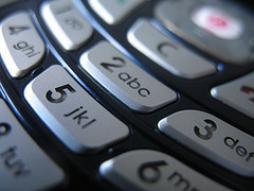HIV/AIDS
Posted by AnneryanHeatwole on Aug 26, 2009
TxtAlert data sheet 2636 Views
TxtAlert is a mobile technology tool developed by Praekelt Foundation. It sends automated, personalized SMS reminders to patients on chronic medication. Apart from notifying patients of their upcoming appointments, TxtAlert also allows patients to reschedule their appointments if they are unable to attend, or if they've missed an appointment. The utilization of a "Please Call Me"- message system ensures that a patient can be in contact with the clinic / doctor to reschedule a missed appointment, even if they do not have any airtime available to call. Once a "Please Call Me"-message is received from a patient, a TxtAlert administrator will phone back the patient and assist them to confirm or reschedule an appointment.
Organization that developed the Tool:
Problem or Need:
Patients on medications for chronic, contagious conditions often cease treatment, run out of drugs or simply forget to see the doctor regularly. When this happens, patients often build up resistance against medications, and it becomes harder to find a treatment combination that will effectively contain the spread of diseases in the body. If patients go to see the doctor regularly, their disease can be better managed.
Brief Description:
TxtAlert is a messaging tool that uses SMS reminders to encourage patients on medications for chronic, contagious diseases to attend their doctor appointments regularly. The tool works with hospital/clinic medical records system to draw patient data and appointment dates from the system, then sends personal SMS reminders to patients.
Tool Category:
App resides and runs on a server
Key Features :
- Sends patient reminders via SMS
- Enables patient/health provider communication
- Easy appointment rescheduling via SMS
- Streamlines clinic/hospital administration
Organizations Using the Tool:
- Right to Care HIV/AIDS
- Baragwanath Hospital - Influenza
Number of Current End Users:
Number of current beneficiaries:
Handsets/devices supported:
Any handset that can receive an SMS.
Is the Tool's Code Available?:
Is an API available to interface with your tool?:
Posted by AnneryanHeatwole on Aug 25, 2009
My Question data sheet 2342 Views
Organization that developed the Tool:
Problem or Need:
Finding accurate, confidential information about sexual reproductive heath and HIV/AIDS prevention can be difficult or uncomfortable for young people. However, having access to reliable health information is necessary for making informed life decisions.
Brief Description:
My Question allows young people in Nigeria to send in their questions about sexual reproductive health and/or HIV/AIDS anonymously to trained counsellors via SMS, voice, or through email. Within 24 hours, an answer is sent directly to the phone from which the question was sent.
Tool Category:
App resides and runs on a server
Key Features :
- Enables questions to be asked via SMS
- Enables questions to be asked via voice
- Confidential responses
- Fast access to information
Main Services:
Interactive Voice Response (IVR)
Information Resources/Information Databases
Organizations Using the Tool:
- One World UK
- Education as a Vaccine Against AIDS
Number of Current End Users:
Number of current beneficiaries:
Is the Tool's Code Available?:
Is an API available to interface with your tool?:
Posted by LeighJaschke on Jul 16, 2009
Wireless Technology for Social Change: Trends in Mobile Use by NGOs data sheet 3801 Views
Author:
Kinkade, Sheila; Verclas, Katrin
Publication Type:
Magazine or newspaper article
Abstract:
This report explores the ways in which non-
governmental organizations (NGOs) and
other groups deploy and use mobile
technology in their work to help solve some
of the world’s greatest problems. This study
is not meant to be exhaustive or definitive,
but rather to provide a view into how a
number of organizations are using mobile
technology to achieve social impact. The authors
selected case studies that enabled an
exploration of significant innovations,
opportunities, and emerging trends, as well
as the obstacles, in the use of mobile
technology to advance social goals.
Posted by CorinneRamey on May 29, 2008
For 40,000 people a year across the U.S., voicemail is a lifeline. The Community Voice Mail (CVM) program, started in 1991, has helped provide over 40,000 homeless and low-income individuals each year with access to voicemail in 41 U.S. cities. For many CVM clients, their voicemail is their connection to a job, an apartment, and relationships with teachers, doctors, or social service agencies. (MobileActive wrote about CVM and similar programs here). However, as mobile phones have become ubiquitous across the United States -- even in the hands of homeless people -- CVM has questioned the impact and relationship of mobile phones to their traditional voicemail model.
MobileActive sat down with Steve Albertson, Director of New Initiatives at Community Voicemail, for a chat.
Posted by CorinneRamey on May 10, 2008
In a mobile phone game in India, a cricket match is played between the teams Demons XI and Safety XI. A report about the game describes it as a “cricket-based game involving balls in the form of condoms, faithful partners, information on HIV and the symbolic AIDS red ribbon.” A team wins by avoiding “googlies and doosra balls - unsafe sex, infected blood transfusions, infected syringes and the company of bad friends.”
The game is part of a growing market of "edutainment" mobile phone games -- games that are designed to provide entertainment and be educational at the same time. MobileActive interviewed Hilmi Quraishi, project director of ZMQ Software Systems, to learn more about the project. Hilmi said that when ZMQ was founded in 2003, it wasn't with the intention of developing games for mobile phones. "Initially we were focused on designing technology solutions for the Internet, but then we realized that in order to expand our reach we need to use technology that is reaching the common man," he said.


